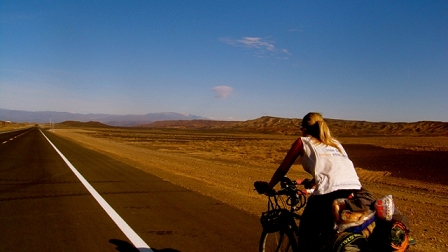Erstellt am: 11. 9. 2012 - 14:07 Uhr
Another day, another Euro crisis
Subscribe to the Reality Check podcast and get the whole programme after the show.
Many people must have been hoping that the Euro crisis would evaporate over the summer break. I know I was. Of course, it never really went away. There were distant rumblings of ratings agencies downgrading one country or another every few weeks - but the urgency somehow went out of it all. Those "very last chance" meetings that came and went without anything decisive coming out of them dropped dramatically in their frequency as ministers took their summer breaks, and now we seem to be returning to business as usual.
Did I say "business as usual"? Well, not quite. I'm sure everyone will be very pleased to know that while we were all enjoying the sunshine, the President of the European Central Bank, Mario Draghi, was slaving away, coming up with a "fully effective backstop" to make the whole dreadful mess go away.
Did I say "make the whole dreadful mess go away"? Well, not quite. The idea is that the ECB will buy treasury bonds from the countries currently paying very high rates of interest to the banks, so cutting the interest the country has to pay. In Spain, for example, interest rates could be cut from 6.5% to 2.5% overnight. But, of course, there's a snag. For one thing, that money from the ECB has strings attached, which are not acceptable to Spain, for one. Do you get a feeling of deja vu? Weren't we here with Greece several months ago?
For another, the money has to come from somewhere, and Germany is currently waiting to find out whether it's backing of 27% of the EU bailout fund is actually constitiutionally legal. If the court rules that it isn't, well, who knows what will happen next? Quite possibly the same as has beeen happening for the last 3 years. Nothing. Perhaps it is business as usual, after all.
Johannes Pollak ot the Institute for Advanced Studies says that the urgency of the matter depends on where you're sitting, but what we really need is an open, democratic process - not more meetings and plans that look good in theory, but fall apart in practice.
Dieses Element ist nicht mehr verfügbar
Hungarian brain drain
Hungarian students receiving state sponsored university places are being told they must stay in Hungary for 10 years after graduation, in a bid to stop the country's "brain drain". But does this violate EU freedom of movement laws? Nick Thorpe reports from Budapest.
Dieses Element ist nicht mehr verfügbar
Dutch elections
Voters in The Netherlands go to the polls tomorrow. Perro de Jong of Radio Netherlands Worldwide looks at the issues and personalities driving public opinion as people choose their new government.
Dieses Element ist nicht mehr verfügbar
Die Erste Foundation Social Integration Award
Entries are now being invited for the Erste Foundation Award for Social Integration. The Award is for projects in Central and Eastern Europe, and for the first time Austria is included. Last time more than one thousand eight hundred projects applied. Joanna Bostock talks to Dejan Petrovic from the Erste Foundation, about the type of projects likely to win.
Dieses Element ist nicht mehr verfügbar
The round the world solar cyclist

susie wheeldon
Chris Cummins meets the young woman who has cycled round the world to promote solar energy - and to have the adventure of a lifetime. Read more here.
Dieses Element ist nicht mehr verfügbar
FM4 Reality Check
Monday to Friday from 12.00 to 14.00, and after the show via Podcast or fm4.orf.at/realitycheck.


